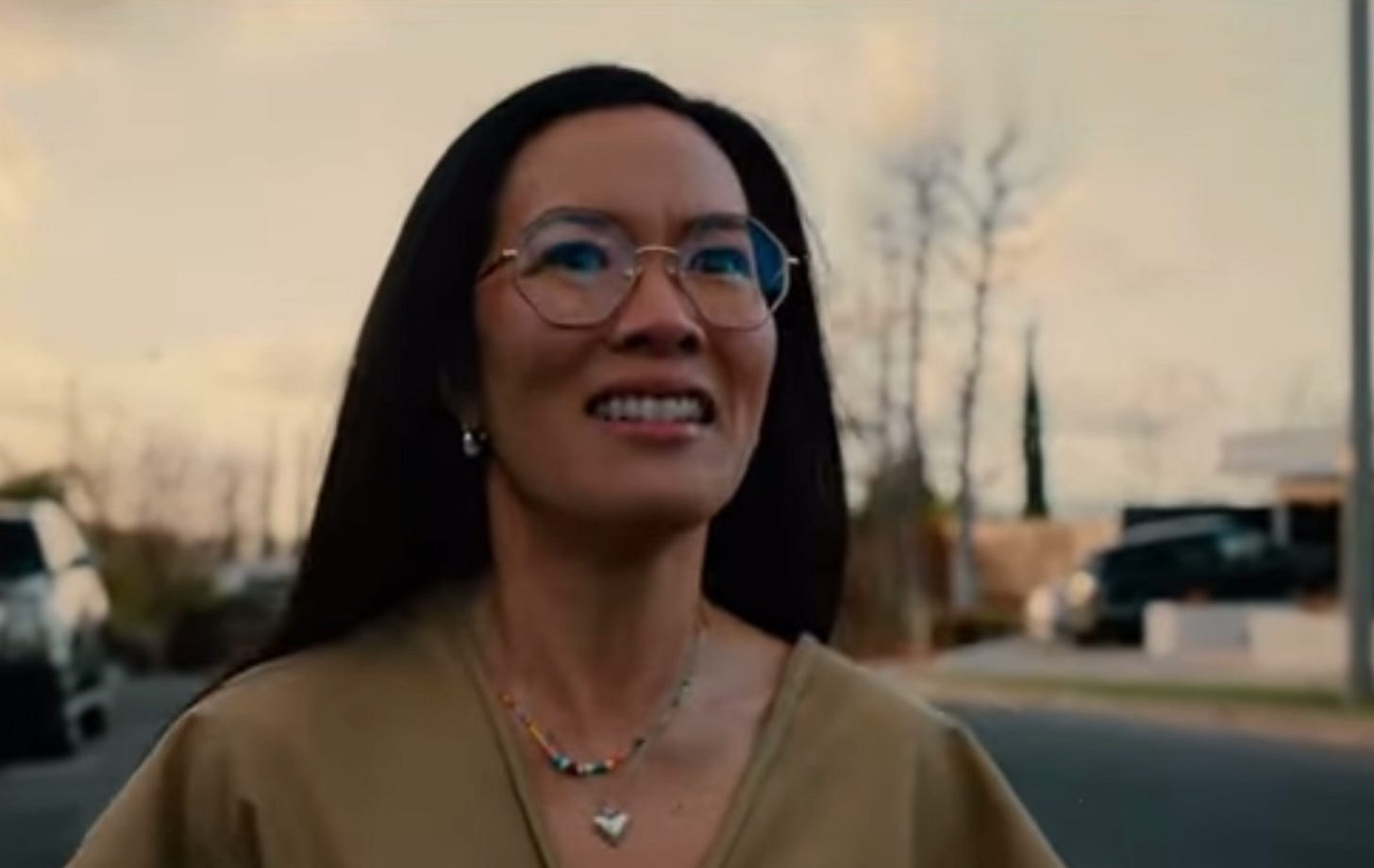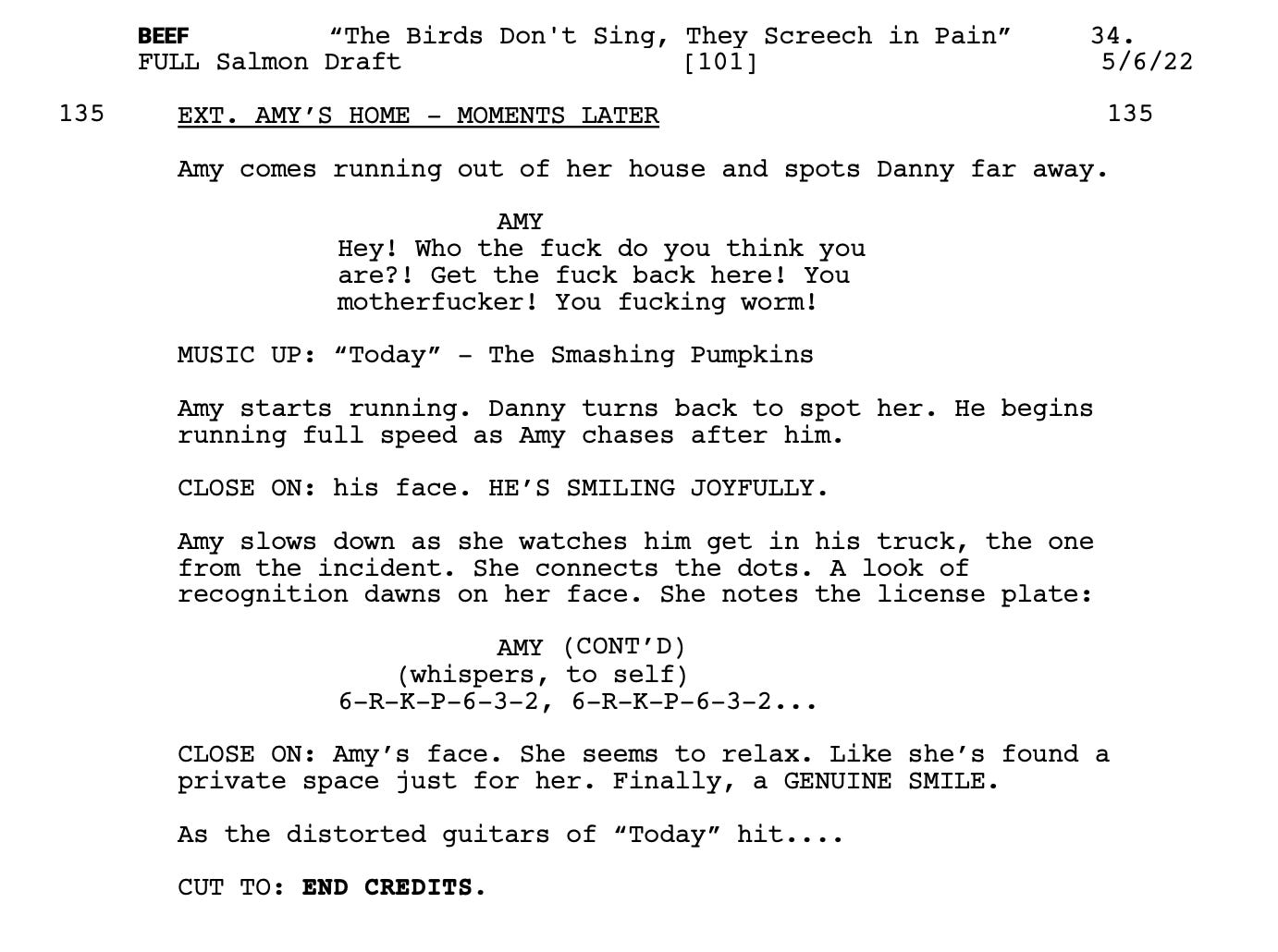The Difference Between Character Choices and Story Choices (And Why It Matters for Your Auditions)
Performance Breakdown Part 2: Why Ali Wong's subtle smile at the end of Beef's pilot sets up the journey for the season.
These internet streets are filled with chatter about making "bold choices"—but to me, story-focused choices filtered through your instrument and POV is really where it's at.
Here's why this distinction could change how you approach every audition.
The Problem Most Actors Don't Even Know They Have
What I see time and time again is actors making character choices that don't help with story—and sometimes actually get in the way of it by ignoring the clues on the page.
So what do I mean by "story-focused choice" and how can you tell the difference?
Character Choices vs. Story Choices
Character-based choices might add complexity and nuance to your character, but they do nothing to move the plot forward.
For example: Deciding your character's favorite drink is a Manhattan because that was your dad's favorite drink. Interesting backstory! But unless the plot involves you going on an epic journey to find that specific discontinued whiskey brand your dad used—it's just decoration. Nice, but not necessary.
Story-focused choices ARE necessary. Without them, the story literally cannot move forward.
Why Ali Wong's Smile Is Crucial
This is exactly what Ali Wong does at the end of the Beef pilot, and it's genius writing.
Let's break down what we've watched for the entire episode:
She's stuck and deeply unhappy in her life
Her marriage is struggling
Her overbearing mother-in-law is suffocating her
She's in the middle of selling her business—potentially losing something that's defined her life and given her purpose
It's gotten so bad that she's secretly pulling out a gun just to FEEL something—anything—in her life
And then this beef comes literally knocking on her door and gives her something to DO.
Without that subtle smile at the end—we have no show.
That moment tells us everything: Ali's character has found something that makes her feel alive, and she's going to follow that track for the entirety of the season. The story can now begin in earnest.
This Is What Story-Focused Acting Looks Like
Let’s take a look at the script:
That smile is a story-focused choice! It’s literally on the page.
However, I've coached actors who skim screen directions and completely miss vital details like this. Others choose NOT to smile because they want to be "different." And some just smile because it's on the page without understanding the WHY behind it—so it feels hollow and disconnected, missing the emotional impact that moment demands. If this was an audition side and you didn't land that moment, you've missed the point of the scene.
Script analysis is both fact-finding AND interpretation. It's taking all those plot details from the script and threading them together to understand what the story NEEDS and how your performance can make that journey clearest to the audience.
How YOU decide to show that feeling of finding the passion that wakes you up from your life being on autopilot—that's your artistry.
Notice that the script just says “GENUINE SMILE.” Ali could have burst into giggles. She could have yelled to the heavens with joy. She could have done a full villainous laugh. All of those choices would work for the character.
But SHE chose the slightest smile—if you blink, you miss it. That subtlety tells us everything Ali’s crafted: this is a character so afraid to fully experience joy that even her moment of awakening is restrained. It's a choice that pays off beautifully in the season finale when she finally allows herself to feel wonder and pure joy.
Why This Matters for Your Auditions
When you're preparing for auditions, ask yourself:
What does the STORY need from this moment?
How does my choice move the plot forward?
Am I adding decoration or am I adding something necessary?
Your job isn't just to create an interesting character. Your job is to serve the story while bringing your unique artistry to it.
The actors who understand this difference are the ones who are in the selection pile. They're not just talented—they're strategic about how they use their talent.
The Bottom Line
Stop trying to be "bold" just for the sake of being different. Start being essential to the story. That's where the real power lies.
Want to dive deeper into story-focused choices and pilot auditions? Our Slaytember class is covering exactly this, and casting director Danny Gordon (who helped cast season 1 of Beef) is joining us in the final week. This is the kind of strategic thinking that separates working actors from everyone else.




